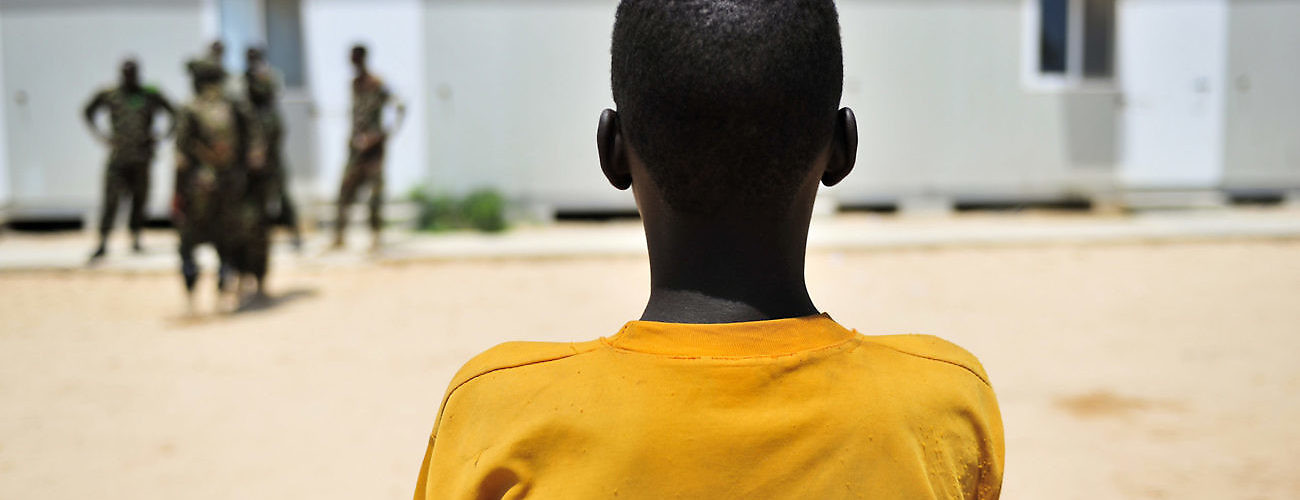Former child soldiers enlisted by al-Shabaab are handed over to the UN Children’s Fund (UNICEF) after their capture by forces of the African Union Mission in Somalia (AMISOM), Mogadishu, Somalia, January 11, 2012. (UN Photo/Tobin Jones)
The concept and implementation of disarmament, demobilization, and reintegration (DDR) have evolved as DDR-related activities have increasingly occurred in environments where armed conflict is ongoing, no peace agreement has been signed, and armed groups designated as terrorist organizations (AGDTOs) are operating. In parallel, reintegration has increasingly been discussed in the UN counterterrorism architecture through the concept of prosecution, rehabilitation, and reintegration (PRR). The changing context has raised challenges related to reintegration, especially reintegration of former members of AGDTOs.
This policy paper analyzes the risks faced by individuals taking part in reintegration processes and by the communities they are reintegrating into. In particular, it analyzes how the designation of an armed group as a terrorist organization by the UN Security Council or by a state impacts these risks while acknowledging that these risks largely depend on the broader context. The paper examines three case studies of current reintegration processes: (1) the process for reincorporating former combatants from the Revolutionary Armed Forces of Colombia–People’s Army (FARC-EP); (2) the defector program for former members of al-Shabaab in Somalia; and (3) the reintegration process for individuals associated with Boko Haram in the Lake Chad Basin.
The paper concludes by recommending several steps the UN could take to help ensure that reintegration processes address protection risks, especially for former members of AGDTOs:
- Tailor reintegration programs to the context, not to whether a group is labeled as a terrorist organization;
- Design reintegration programs to be gender-sensitive and human rights–compliant;
- Ensure that PRR and DDR programs are complementary and adopt the Integrated DDR Standards module on AGDTOs; and
- Keep reintegration and counterterrorism goals distinct.








